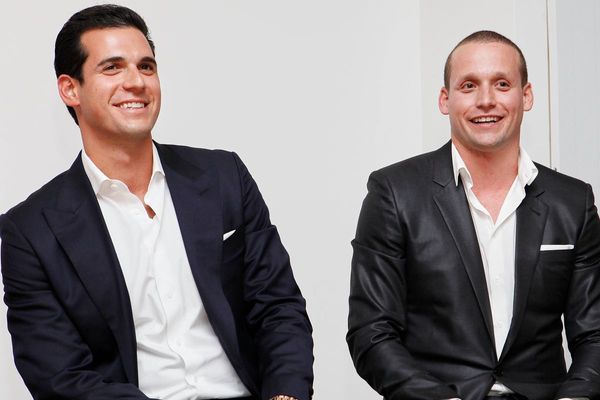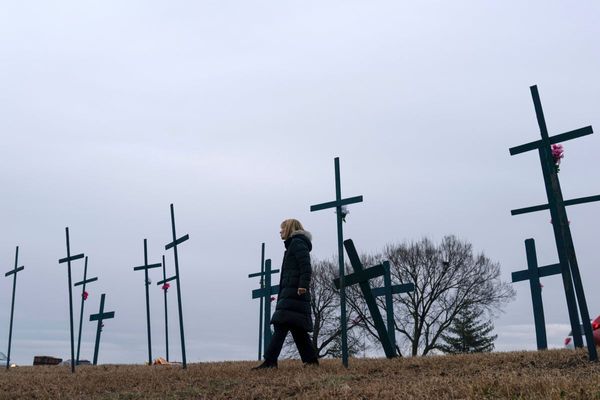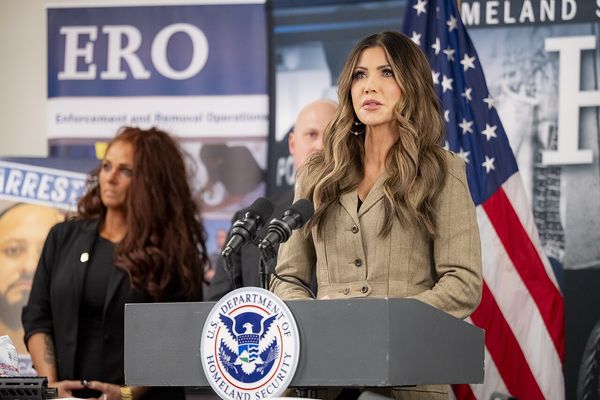Donald Trump has threatened “very severe consequences” if Vladimir Putin does not agree a ceasefire in the war in Ukraine at the leaders' summit on Friday.
The US president did not specify what the consequences could be, but he has warned of economic sanctions if a meeting between himself and the Russian President in Alaska proved fruitless.
He also said that a meeting between the pair could swiftly be followed by a second that included the leader of Ukraine.
The comments by Trump on Wednesday and the mood music after a virtual meeting of Trump, European leaders and Ukrainian President Volodymyr Zelensky could provide some hope for Kyiv after fears the Alaska meet could sell out Ukraine and carve up its territory.
However, Russia is likely to resist Ukraine and Europe's demands strongly and previously said its stance had not changed since it was set out by Putin in June 2024.
When asked if Russia would face any consequences if Putin does not agree to stop the war after Friday’s meeting, Trump responded: “Yes, they will.”
Asked if those consequences would be sanctions or tariffs, Trump told reporters: “I don't have to say, there will be very severe consequences."
But the president also described the aim of the meeting between the pair in Alaska as "setting the table" for a quick follow-up that would include Mr Zelensky.
"If the first one goes okay, we'll have a quick second one," he said.
"I would like to do it almost immediately, and we'll have a quick second meeting between President Putin and President Zelensky and myself, if they'd like to have me there."
Trump did not provide a time frame for a second meeting.
European leaders and Mr Zelensky had earlier spoken with Trump in a last-ditch call hosted by Germany to lay out red lines ahead of the Alaska meeting.
"We had a very good call. He was on the call. President Zelensky was on the call. I would rate it a 10, very friendly," Trump said.
Volodymyr Zelensky told Trump that "Putin is bluffing” as he discussed the obstacles to ending the war in Ukraine with the US President and other world leaders in the call.
The Ukrainian President also said his "position hasn't changed” on surrendering any territory amid growing concerns that Trump will attempt to force through a peace deal that sees Ukraine lose land when he meets Vladimir Putin in Alaska on Friday.
Mr Zelensky joined the call with Prime Minister Sir Keir Starmer and Trump.
German Chancellor Friedrich Merz hosted the call and French President Emmanuel Macron, Italy’s Giorgia Meloni, Poland’s Donald Tusk, Finnish President Alexander Stubb, EU leader Ursula von der Leyen and NATO’s Mark Rutte also joined.
Mr Zelensky said all the leaders wanted "peace in Ukraine, peace in Europe".
He added: “Russia should not have the right to veto Ukraine's NATO prospects...There should be joint pressure on Russia, there should be sanctions, and there should be a message that if Russia doesn't agree to a ceasefire in Alaska, this principle should work.”
He says he told Mr Trump that "Putin is bluffing”.
“He is trying to push forward along the whole front...Putin is also bluffing saying he doesn't care about the sanctions and that they're not working," he said.
One of the main points of contention is said to be the American’s suggestion that Ukraine give up Donbas, which has a large Russian minority, in exchange for Putin agreeing to stop any further occupation of the country.
Mr Zelensky has previously vowed not to agree to a plan to agree to a plan that would see control of the region officially handed over to Russia.
On Wednesday he confirmed his "position hasn't changed because it's based on the Ukrainian constitution and the Ukrainian constitution hasn't changed".
He added: "Any questions concerning our country's territorial integrity cannot be discussed without regard for our people, for the will of our people and the Ukrainian constitution.”
Sir Keir insisted there is now a "viable" chance of a ceasefire between Russia and Ukraine.
Addressing a meeting of the Coalition of the Willing countries of Ukrainian allies from Downing Street, Sir Keir said: "As I've said personally to President Trump, but for three-and-a-bit years this conflict has been going on and we haven't got anywhere near the prospect of actually a viable solution, a viable way of bringing it to a ceasefire.
"Now we do have that chance, because of the work the President has put in."
Speaking to leaders including US vice president JD Vance and Mr Zelensky, Sir Keir said Russia should continue to be put under pressure. He also agreed that no negotiations about Ukraine could take place without Mr Zelensky.
Sir Keir said: "This is a critical moment. We have to combine active diplomacy on the one hand with military support to Ukraine and pressure on Russia."
He added: "International borders cannot be, and must not be changed by force, and again that's a long-standing principle of this group. And alongside that, any talk about borders, diplomacy, ceasefire has to sit alongside a robust and credible security guarantee to ensure that any peace, if there is peace, is lasting peace and Ukraine can defend its territorial integrity as part of any deal."
The call was the last chance for Mr Zelensky and other European leaders to lobby the US President before he meets with Putin alone at the remote Joint Base Elmendorf-Richardson - a US military installation in Anchorage, Alaska.
A Downing Street spokesman said: “The Prime Minister was clear that our support for Ukraine is unwavering - international borders must not be changed by force and Ukraine must have robust and credible security guarantees to defend its territorial integrity as part of any deal.
“Europe stands ready to support this and will continue to work alongside President Trump and President Zelenskyy for a just and lasting peace in Ukraine.”
The White House has been managing expectations that the discussion will lead to a peace deal.
On Tuesday, Mr Trump’s press secretary Karoline Leavitt described the meeting as a "listening exercise" where the President would seek a "better understanding" of the situation.
Some have criticised the decision to hold talks on the war in Alaska, which is land Russia sold to the US almost 160 years ago.
Nigel Gould-Davies, former British ambassador to Belarus, said: "It's easy to imagine Putin making the argument during his meetings with Trump that, 'Well, look, territories can change hands. We gave you Alaska. Why can't Ukraine give us a part of its territory?'"







